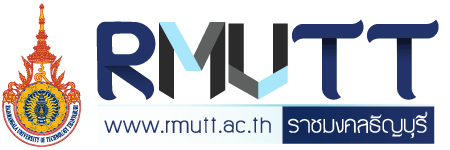Bachelor of Engineering in Mechatronics and Robotics Engineering (B.Eng.)
Faculty of Technical Education

Overview
Students in the Mechatronics Engineering program, offered through the Mechatronics and Robotics Engineering Department, create intelligent devices by combining mechanical, electrical, computer, and other engineering principles. Graduates from the School of Engineering are shaping the future by designing robots for the manufacturing industry, biomedical devices, rehabilitation robots, service robots, smart vehicles, autonomous farm equipment, and much more. These devices have mechanical and electrical components, sensors, and computer software - all working together, harmoniously. As automation and robotics increase around us, so the companies need engineers with specialized knowledge of these topics. The field of Mechatronics Engineering emerged out of this need to develop the best possible design while seamlessly merging mechanical and electronics knowledge. Mechatronics Engineers have the interdisciplinary knowledge necessary to overseethe design and development of such intelligent devices from beginning to end, rather than completing mechanical, electrical and control designs separately. The degree program in Mechatronics Engineering at RMUTT is one of only a few programs in Thailand and abroad.
Duration of Course 4 years
Language of Instruction: Thai
Entry requirements:
Academic RequirementsApplicants for bachelor’s degree programs must have the equivalent of a High school/vocational school with a minimum GPA equivalent to 2.50/4.00 grading scale.
Your GPA (Grade Point Average) is calculated using the grades that you received in each course, and is determined by the points assigned to each grade (e.g. for the US grading scale from A-F).
General Requirements
- High school / Vocational school transcript.
- International students must have the concurrence of a University Designated School Official (DSO) charged with compliance of Immigration guidelines.
- Before starting a program, you need to have a basic knowledge of the English Language. The TOEIC/ IELTS/ TOEFL is administered in a paper format and measures your ability to use and understand English in a classroom setting at the college or university level. It accurately measures how well you can listen, read and write in English while performing academic tasks.
| English Language Requirement | Required Score |
| TOEFL (677) (Paper-based test) | ≥ 420 |
| TOEFL (120) (Internet-based test) | ≥ 40 |
| TOEFL (300) (Computer-based test) | ≥ 120 |
| IELTS (9) | ≥ 3.5 |
| TOEIC (990) | ≥ 400 |
| RT-TEP (6.5) | ≥ 3.5 |
Remark: In case of having the result of the English Language Score Test. You will receive the special consideration.
Required Knowledge
- Basic theoretical knowledge of Mathematics, Physics, English, etc.
- Basic theory of Mechatronics and Robotics Engineering.
- Minimum GPA equivalent to 2.50/4.00 grading scale.
Course Content
Total of Credit 143 CreditProgram Structure
1. General Education Courses 30 credits
1.1 Social Sciences and Humanities Courses 6 credits
1.1.1 Social Sciences Courses 3 credits (Elective)
1.1.2 Humanities Courses 3 credits (Elective)
| Society and Environment | 3 | credits |
| Community and Sustainable Development | 3 | credits |
| Development of Social and Life Quality | 3 | credits |
| Society and Economic | 3 | credits |
| General Economics | 3 | credits |
| Labor Law | 3 | credits |
| Information and Academic Report Writing | 3 | credits |
| Information Retrieval | 3 | credits |
| Psychology and Daily Life | 3 | credits |
| Logic in Daily Life | 3 | credits |
| Reasoning and Ethics | 3 | credits |
1.2 Language Courses 12 Credits
1.2.1 Language Courses 9 Credits (Compulsory)
1.2.1 Language Courses 3 Credits (Elective)
| English for Communication I | 3 | credits |
| English for Communication II | 3 | credits |
| English Conversation | 3 | credits |
| Thai for Communication | 3 | credits |
| Reading for Improving Life Quality | 3 | credits |
| Academic Reading and Writing | 3 | credits |
| Writing for Careers | 3 | credits |
| Foreign Languages in Thai | 3 | credits |
| English for Presentations | 3 | credits |
| English Writing for Everyday Life | 3 | credits |
| English for Thai Identity | 3 | credits |
| Preparation for English Standardized Tests | 3 | credits |
1.3 Science and Mathematics Courses 6 credits
1.3.1 Science and Mathematics Courses 3 credits (Compulsory)
1.3.2 Science and Mathematics Courses 3 credits (Elective)
| Computer and Information Technology Skills | 3 | credits |
| Introduction to Statistics | 3 | credits |
| Alternative Energy | 3 | credits |
1.4 Physical education or recreation more than 1 credit (Elective)
| Individual Sports | 1 | credit |
| Team Sports | 1 | credit |
| Recreation | 1 | credit |
1.5 Integrated Course 5 credits
1.5.1 Integrated Course 3 credits (Compulsory)
1.5.2 Integrated Course 2 credits (Elective)
| Social Skills | 3 | credits |
| Thai Lifestyle in Globalization | 3 | credits |
| Thai Wisdom for Sufficiency Life | 2 | credits |
| Learning Skill for Success | 2 | credits |
| Personality Development | 3 | credits |
2. Specialized Courses 107 Credits
2.1 Fundamental subject courses 48 credits
2.1.1 Basic Mathematics and Science courses 18 credits (Compulsory)
2.1.2 Foundation Engineering course 30 credits (Compulsory)
2.1.2.1 Foundation Engineering course 18 credits (Compulsory)
CNC Manufacturing Process and CNC Technology 3 credits
2.1.2.1 Foundation course to increasing engineering skills 12 credits (Compulsory)
| Calculus for Engineers I | 3 | credits |
| Calculus for Engineers II | 3 | credits |
| Chemistry for Engineers | 3 | credits |
| Chemistry Laboratory for Engineers | 1 | credit |
| Physics for Engineers I | 3 | credits |
| Physics Laboratory for Engineers I | 1 | credit |
| Physics for Engineers II | 3 | credits |
| Physics Laboratory for Engineers II | 1 | credit |
| Computer Programming | 3 | credits |
| Digital Circuits and Logic Design | 3 | credits |
| Engineering Drawing | 3 | credits |
| Engineering Materials | 3 | credits |
| Engineering Mechanics | 3 | credits |
| Basic Engineering Practical | 2 | credits |
| Mechatronics Engineering Laboratory | 1 | credit |
| Fundamental of Electrical Engineering | 3 | credits |
| Microprocessor and Microcontroller | 3 | credits |
| Electronic Devices and Circuit Design | 3 | credits |
2.2 Specialized courses 59 credits
2.2.1 Compulsory Courses 37 credits (Compulsory)
2.2.1.1 Core Engineering Compulsory Courses 33 credits (Compulsory)
2.2.1.2 Engineering Integration Compulsory Courses 4 credits (Compulsory)
2.2.2 Elective Courses 15 credits (Elective)
2.2.3 Professional experience courses 7 credits
2.2.3.1 Compulsory Courses 1 credit (Compulsory)
2.2.3.2 Elective Course 6 credits (Elective)
| Pneumatics and Hydraulics | 3 | credits |
| Kinematics and Dynamics of Robotics | 3 | credits |
| Sensors and Transducers | 3 | credits |
| Microcontroller and Mechatronic Applications | 3 | credits |
| Automation Control System | 3 | credits |
| Computer-Aided Design and Applications | 3 | credits |
| Control System Theory | 3 | credits |
| Electrical Machine in Automatic System | 3 | credits |
| Industrial Robotics and Machine Vision | 3 | credits |
| Power Electronics | 3 | credits |
| Advance Robotics Control System | 3 | credits |
| Seminar of Mechatronics Engineering | 1 | credit |
| Mechatronics Engineering Project | 3 | credits |
| Biomedical Engineering | 3 | credits |
| Fundamentals of Embedded Systems | 3 | credits |
| Product Development and Work for Mechatronics Engineering | 3 | credits |
| Intelligent Systems | 3 | credits |
| Fuzzy Logic Control | 3 | credits |
| Robot in Material Handling Systems | 3 | credits |
| Robot Control Systems | 3 | credits |
| Selected Topics in Mechatronics Engineering | 3 | credits |
| Mechanical Design | 3 | credits |
| Internet of Things | 3 | credits |
| Mechanics of Machinery | 3 | credits |
| Preparation for Professional Experience | 1 | credit |
| Cooperative Education | 6 | credits |
| International Cooperative Education | 6 | credits |
3. Free Elective Courses 6 credits
Free Elective Courses 6 credits
Choose from the courses offered at the undergraduate program of RMUTT. Which is not the same as the course that has been studied and must not be a course that requires study without credits, with the approval of the advisor.
